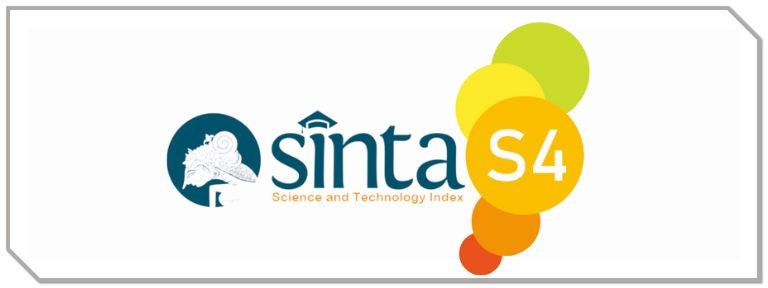PENERAPAN MODEL FLIPPED CLASSROOM DAN JIGSAW UNTUK MENINGKATKAN HASIL BELAJAR SISWA PADA MATERI VEKTOR
DOI:
https://doi.org/10.51878/teaching.v2i2.1296Keywords:
flipped classroom, jigsaw, hasil belajarAbstract
The development of technology makes everything easy and interesting. Technology is born from education, education should take advantage of technology. The use of technology can improve the quality of education so that learning models that use technology emerge. In this study, the researcher used a flipped classroom model combined with a jigsaw cooperative model to improve learning outcomes in class. Before the research, the researcher conducted a pre-cycle stage to provide an overview of the learning model that would be used as well as an initial test to see the students' basic abilities. In addition, the researchers also divided students into groups of origin and groups of experts. Researchers provide online learning resources and discussion materials for expert groups to study. At the time of face-to-face, students have more time to straighten out concepts, discuss things that have not been understood when studying online. Students also have more time to convey ideas and knowledge to their original group. This learning activity is student-centered. Students become more motivated, so they are more active in participating in a series of learning both online and face-to-face. Increased student learning outcomes can be seen from the results of observations and results of tests carried out by students at the end of each cycle.
ABSTRAK
Perkembangan teknologi menjadikan segala sesuatu menjadi mudah dan menarik. Teknologi terlahir dari pendidikan, selayaknya pendidikan perlu memanfaatkan teknologi. Pemanfaatan teknologi dapat meningkatkan mutu pendidikan sehingga bermunculanlah model-model pembelajaran yang memanfaatkan teknologi. Pada penelitian kali ini peneliti menggunakan model flipped classroom yang dipadukan dengan model kooperatif tipe jigsaw untuk meningkatkan hasil belajar dikelas. Sebelum penelitan peneliti melakukan tahap pra siklus untuk memberi gambaran tentang model belajar yang akan dipakai sekaligus dibagikan tes awal untuk melihat kemampuan dasar siswa. Selain itu peneliti juga membagi siswa menjadi kelompok asal dan kelompok ahli. Peneliti memberikan sumber belajar dan bahan diskusi secara online pada kelompok ahli untuk dipelajari. Pada saat tatap muka, siswa memiliki waktu lebih banyak untuk meluruskan konsep, mendiskusikan hal - hal yang belum dimengerti saat belajar online. Siswa juga memiliki waktu lebih untuk menyampaikan gagasan dan ilmu kepada kelompok asalnya. Kegiatan pembelajaran ini berpusat pada siswa. Siswa menjadi lebih termotivasi, sehingga lebih aktif mengikuti rangkaian pembelajaran baik saat online maupun saat tatap muka. Hasil belajar siswa meningkat dapat dilihat dari hasil observasi dan hasil tes yang dilakukan siswa setiap akhir siklus.
Downloads
References
Lestari, S. (2018). Peran Teknologi dalam pendidikan di era Globalisasi. EDURELIGIA: Jurnal Pendidikan Agam Islam , 2(2), 94 - 100
Lubis, N. A. & Harahap, H. (2016). Pembelajaran Kooperatif Tipe Jigsaw. Jurnal As - Salam, 1(1), 96 - 102.
Rahmana, A. (2009). Peranan teknologi informasi dalam peningkatan daya saing usaha kecil menengah. In Seminar Nasional Aplikasi Teknologi Informasi (SNATI)
Rejeki, N. E. S. (2009). Meningkatkan Hasil Belajar Matematika Melalui Model Pembelajaran Jigsaw Pada Siswa Kelas Viii G Semester 2 Smp Negeri 2 Toroh Grobogan. Media Penelitian Pendidikan: Jurnal Penelitian dalam Bidang Pendidikan dan Pengajaran, 3(2).
Suhardi, D. (2020). Flipped Classroom Model: Solusi bagi Pembelajaran Darurat Covid-19, Jakarta : kemdikbud.go.id
Tegeh, I. M., & Pratiwi, N. L. A. (2019). Hubungan antara Motivasi Belajar dan Keaktifan Belajar dengan Hasli Belajar IPA Siswa Kelas V SD. Jurnal IKA, 17(2), 150-170
Walidah, Z., Wijayanti, R., &Affaf, M. (2020). The Pengaruh Model Pembelajaran Flipped Classroom (FC) terhadap Hasil Belajar. Edumatica: Jurnal Pendidikan Matematika, 10(2), 71-77.
Downloads
Published
How to Cite
Issue
Section
License
Copyright (c) 2022 TEACHING : Jurnal Inovasi Keguruan dan Ilmu Pendidikan

This work is licensed under a Creative Commons Attribution-NonCommercial-ShareAlike 4.0 International License.
















